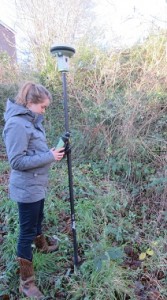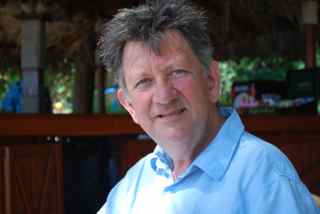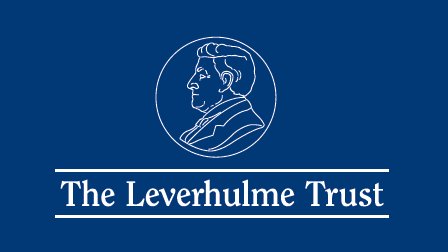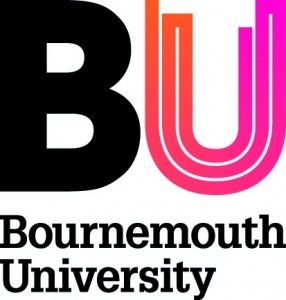
The Leverhulme have launched their Doctoral Scholarships scheme offering UK universities funding of 15 Leverhulme Doctoral Scholarships in a priority research area for that institution. As a university we may submit one application only and therefore the university will be coordinating expressions of interest from Academic Staff.
By 11th February 2020, those who are interested in making an application to the Leverhulme Doctoral Scholarships are invited to submit the following expression of interest – Leverhulme Doctoral Scholarships EOI to Alexandra Pekalski .
Further information about the scheme is available from the Leverhulme Trust. Applicants are advised to check the eligibility criteria very carefully.
Purpose of funding
The Leverhulme will fund 15 doctoral scholarships in a priority research area for that institution. Each award funds 15 Leverhulme Doctoral Scholarships at that institution, with 5 scholarships to be offered in each year of the first three years of the grant.
Each scholarship is for a fixed sum of £90,000 for each student for up to 48 months of full-time doctoral study. This covers:
- maintenance (at research council levels)
- tuition fees
Any remaining funds are to be used for the Leverhulme Scholar’s research and training expenses.
While the scholarships may be held by students of all nationalities, the Trust has a particular interest in supporting UK or EU students.
Process for selecting applications to be submitted
Should you be interested in applying, please note that your expression of interest application will be assessed by Doctoral Funding Panel. Further details of the assessment criteria can be found within the Leverhulme Doctoral Scholarships EOI . Candidates can expect feedback by 25th February 2019.
Timetable
| 21-01-2020 | RDS advertise Expression of Interest (EoI)competition for call |
| 11-02-2020 | EoI deadline (EoIs to be sent to RDS) |
| 13-02-2020 | Papers (applications) sent to Doctoral Funding panel (RDS to administer) |
| 20-02-2020 | Doctoral Funding panel meeting (virtual) |
| 25-02-2020 | Doctoral Funding panel decision and feedback disseminated to applicants |
| 25-02-2020 | RDS to contact Leverhulme to provide the Trust with the principal applicant’s name, departmental affiliation and email address. Access will then be granted to the Leverhulme Trust Grants Management System |
| March/April/May-2020 | Applicants develop proposals with the support of RDS and Doctoral College |
| 22-05-2020 | Application finalised for APF financial sign-off by UET |
| 05-06-2020 | Leverhulme Doctoral Scholarships Deadline |
If you have further questions or queries please contact Alexandra Pekalski (apekalski@bournemouth.ac.uk) and/or Lisa Andrews (andrewsl@bournemouth.ac.uk ). For queries relating to Doctoral colleague support please contact Fiona Knight (fknight@bournemouth.ac.uk) and/or Julia Taylor (jtaylor@bournemouthac.uk).
 Plans for a new round of Doctoral Training Partnerships (DTPs) have been
Plans for a new round of Doctoral Training Partnerships (DTPs) have been 


 Grant Linked studentships
Grant Linked studentships 
 Action on Hearing Loss,
Action on Hearing Loss, This week is
This week is  We are delighted to announce that up to 20 match-funded studentships are available for October 2011, or January 2012 starts. These will be allocated to project teams on the basis of a competitive process across the whole of BU led by Professor Matthew Bennett (PVC Research, Enterprise & Internationalisation) and the Graduate School. Only the best projects will be funded and proceed to advert as set out in the criteria below. Preference will be given to those projects demonstrating match-funding, however exceptionally innovative or timely projects on a non-applied theme will be considered for full funding. Applications should be submitted to
We are delighted to announce that up to 20 match-funded studentships are available for October 2011, or January 2012 starts. These will be allocated to project teams on the basis of a competitive process across the whole of BU led by Professor Matthew Bennett (PVC Research, Enterprise & Internationalisation) and the Graduate School. Only the best projects will be funded and proceed to advert as set out in the criteria below. Preference will be given to those projects demonstrating match-funding, however exceptionally innovative or timely projects on a non-applied theme will be considered for full funding. Applications should be submitted to  This blog is a reflection of the BU
This blog is a reflection of the BU  I am delighted to tell you that BU has been awarded the AHRC Block Grant Partnership: Capacity Building Scheme grant that we applied for early this year. The final numbers are given below:
I am delighted to tell you that BU has been awarded the AHRC Block Grant Partnership: Capacity Building Scheme grant that we applied for early this year. The final numbers are given below:










 Beyond Academia: Exploring Career Options for Early Career Researchers – Online Workshop
Beyond Academia: Exploring Career Options for Early Career Researchers – Online Workshop UKCGE Recognised Research Supervision Programme: Deadline Approaching
UKCGE Recognised Research Supervision Programme: Deadline Approaching SPROUT: From Sustainable Research to Sustainable Research Lives
SPROUT: From Sustainable Research to Sustainable Research Lives BRIAN upgrade and new look
BRIAN upgrade and new look Seeing the fruits of your labour in Bangladesh
Seeing the fruits of your labour in Bangladesh ECR Funding Open Call: Research Culture & Community Grant – Apply now
ECR Funding Open Call: Research Culture & Community Grant – Apply now ECR Funding Open Call: Research Culture & Community Grant – Application Deadline Friday 12 December
ECR Funding Open Call: Research Culture & Community Grant – Application Deadline Friday 12 December MSCA Postdoctoral Fellowships 2025 Call
MSCA Postdoctoral Fellowships 2025 Call ERC Advanced Grant 2025 Webinar
ERC Advanced Grant 2025 Webinar Update on UKRO services
Update on UKRO services European research project exploring use of ‘virtual twins’ to better manage metabolic associated fatty liver disease
European research project exploring use of ‘virtual twins’ to better manage metabolic associated fatty liver disease